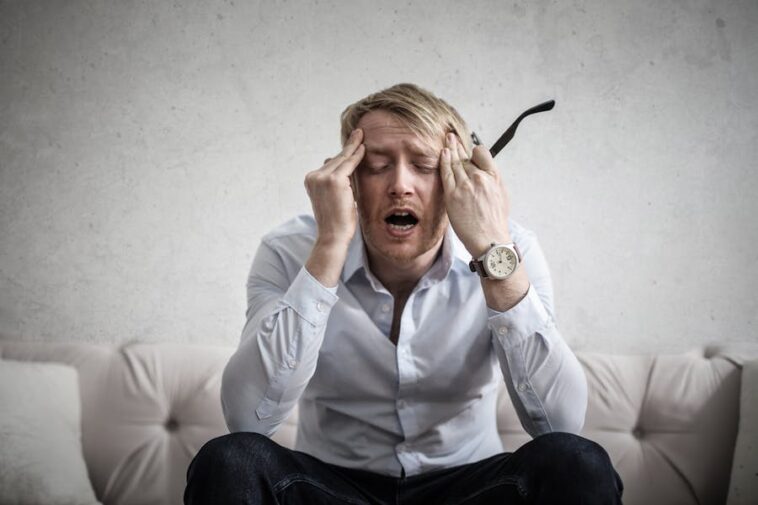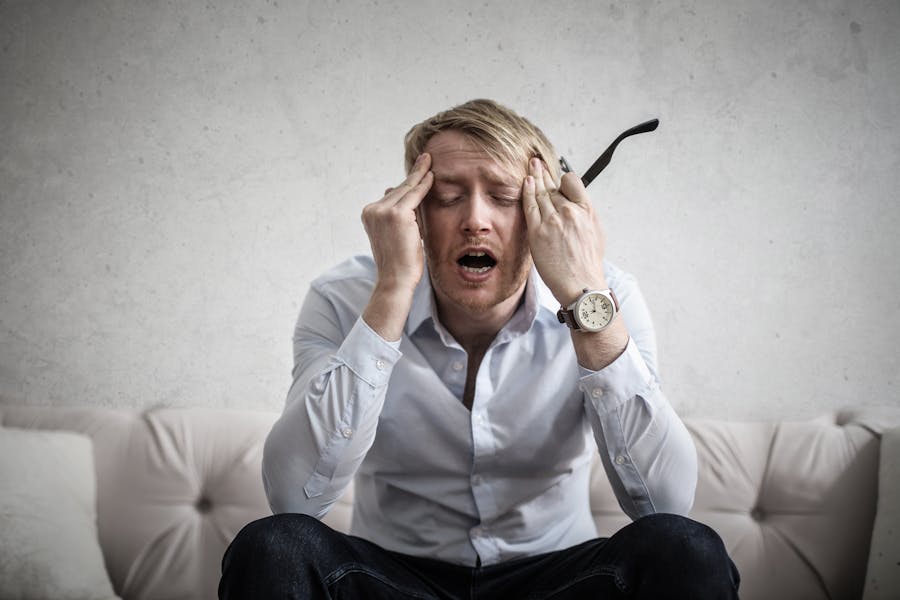Masturbation, a natural and common practice among individuals, is often surrounded by myths and misconceptions regarding its health implications. One of the lesser-discussed concerns is whether masturbation can lead to headaches, a question that intrigues many seeking to understand the connection between sexual activity and physical symptoms. This article aims to explore the potential link between masturbation and headaches, shedding light on the physiological and psychological factors involved. By examining scientific research, expert opinions, and anecdotal evidence, we will provide a comprehensive overview of the subject, offering clarity to those curious about the impact of masturbation on their well-being.
Can Masturbation Cause Headache?
Yes, masturbation can sometimes cause headaches in certain individuals. These headaches, known as sexual headaches or coital cephalalgia, occur in two types: a sudden, severe headache at orgasm or a less intense headache that builds during sexual arousal. They are generally harmless but can signal underlying issues in rare cases, and consulting a healthcare provider is advisable if they persist or worsen.

Masturbation: An Overview
Masturbation is a normal and healthy sexual activity that is practiced by individuals of all ages and genders. It involves self-stimulation of the genital organs for sexual pleasure, often leading to orgasm. While it’s a subject often shrouded in taboo and cultural sensitivity, health professionals recognize it as a natural part of human sexuality. Beyond its immediate pleasurable effects, masturbation has been linked to numerous health benefits, including stress relief, improved sleep, and enhanced sexual function. It is also a safe sexual activity that carries no risk of sexually transmitted infections (STIs) when practiced alone.
Despite its benefits, masturbation has been the subject of many myths and misconceptions throughout history. These myths often stem from cultural, religious, or moral beliefs rather than scientific evidence. However, research over the years has helped debunk many of these myths, emphasizing masturbation’s role in a healthy sexual life. It is considered a normal part of sexual development and is a common behavior among both men and women. Masturbation provides individuals with the opportunity to explore their bodies, understand their sexual preferences, and learn how they can achieve pleasure.
The conversation around masturbation has evolved, with a growing recognition of its importance in sexual health and well-being. Medical and psychological experts now advocate for open discussions about masturbation, aiming to remove the stigma and encourage a healthy understanding of one’s sexuality. This shift towards acceptance helps individuals feel more comfortable with their bodies and sexual practices, contributing to overall sexual satisfaction and health. As we continue to understand more about human sexuality, the perspective on masturbation is likely to further evolve, promoting a more informed and positive approach to this natural sexual activity.
The Potential Link Between Masturbation And Headaches
Masturbation, a common sexual activity practiced by individuals for various reasons including sexual pleasure, stress relief, and as a means of learning about one’s body, occasionally leads to unexpected physical responses. Among these, headaches associated with masturbation, although not widely discussed, represent a curious phenomenon that intertwines sexual health with neurological responses. This section delves into the potential link between masturbation and headaches, exploring both the physiological mechanisms and psychological factors that might contribute to this occurrence.
1. Physiological Mechanisms
The connection between masturbation and headaches can often be traced back to the body’s physiological response during sexual arousal and orgasm. During sexual activity, including masturbation, blood pressure and heart rate increase. For some individuals, this escalation can lead to vascular headaches due to the sudden surge in blood flow to the brain. These headaches are typically categorized into two types: a pre-orgasmic headache that intensifies with sexual excitement, and an orgasmic headache that occurs suddenly at the point of orgasm. The latter is often described as a sharp, severe pain at the back of the head and neck, which can last for several minutes to a few hours.
2. Psychological Factors
Psychological factors also play a role in the occurrence of headaches during or after masturbation. Stress, anxiety, and sexual guilt are psychological aspects that can contribute to the development of headaches. In some cases, the tension and psychological stress associated with these feelings can lead to muscle contractions in the head and neck, manifesting as tension headaches. Additionally, the intense focus and concentration during masturbation might exacerbate tension in the cranial muscles, leading to a headache.
3. Understanding And Managing Sexual Headaches
While the phenomenon of headaches associated with masturbation can be alarming, it is generally not indicative of a serious health issue. However, if the headaches are severe or recurrent, it is essential to consult a healthcare professional to rule out underlying conditions such as cerebral aneurysms or blood pressure problems. In many cases, managing stress, practicing relaxation techniques before engaging in sexual activity, and maintaining a healthy lifestyle can help reduce the frequency and severity of sexual headaches. For those experiencing persistent or severe headaches, medical evaluation is crucial to ensure proper diagnosis and treatment, which may include medication, lifestyle adjustments, or therapy for underlying psychological issues.
When To See A Doctor?
Recognizing when to seek medical advice is crucial if you experience headaches related to masturbation. While occasional, mild headaches may not warrant immediate concern, certain situations and symptoms should prompt a consultation with a healthcare professional. Here’s when to see a doctor:
- Persistent Or Severe Headaches: If the headaches you experience during or after masturbation are recurrent or particularly severe, it’s important to seek medical advice. Persistent or intensifying headaches could indicate an underlying condition that needs to be diagnosed and treated.
- Sudden Onset Of Headaches: A sudden, severe headache that occurs at the point of orgasm, often described as a “thunderclap” headache, should be evaluated immediately. This could be a sign of a serious condition, such as a brain aneurysm or a subarachnoid hemorrhage.
- Accompanying Symptoms: Headaches that are accompanied by other symptoms, such as nausea, vomiting, loss of consciousness, neck stiffness, or symptoms that mimic those of a stroke (e.g., weakness on one side of the body, difficulty speaking, facial drooping), require urgent medical attention. These could indicate a more serious neurological condition.
- Change In Headache Pattern: Any significant change in the pattern, intensity, or frequency of headaches associated with sexual activity should be discussed with a healthcare provider. This includes headaches that progressively worsen or change in character.
- No Previous Headaches: If you have never experienced sexual headaches before and suddenly begin to have them, it’s wise to consult a doctor to rule out any new or underlying conditions.
- Impact On Quality Of Life: If sexual headaches are affecting your quality of life, causing anxiety about sexual activity, or leading to avoidance of sexual activity, seeking medical advice is important. A healthcare professional can provide treatments or interventions to help manage the condition.
- Diagnostic Process: A healthcare provider may conduct a thorough medical history and physical examination and possibly recommend further tests such as MRI or CT scans to rule out underlying conditions. The goal is to ensure that there are no serious neurological conditions behind the headaches and to provide appropriate treatment or management strategies to alleviate the symptoms.
Summary
While masturbation-related headaches are usually benign and temporary, it’s crucial to seek medical advice if they become frequent, severe, or are accompanied by other worrying symptoms such as loss of consciousness, neck stiffness, or changes in vision. Consulting a doctor is essential to rule out underlying health issues that could be causing the headaches. Early evaluation and diagnosis can help manage the condition effectively, ensuring that sexual health is maintained without compromising overall well-being.
FAQ’s
Can Masturbation Directly Cause Headaches?
Yes, masturbation can sometimes lead to headaches, known as sexual or coital cephalalgia, due to increased blood pressure and tension during sexual arousal and orgasm.
Are Masturbation-Induced Headaches Serious?
Most masturbation-induced headaches are not serious and resolve on their own. However, recurring or severe headaches should be evaluated by a doctor to rule out underlying conditions.
How Can I Prevent Headaches During Masturbation?
Reducing stress, practicing relaxation techniques, and maintaining a healthy lifestyle may help prevent these headaches. Staying hydrated and avoiding rapid or intense sexual activity can also be beneficial.
What Types Of Headaches Are Associated With Masturbation?
There are two main types: a slow-build headache during sexual arousal and a sudden, intense headache at the point of orgasm.
Should I Stop Masturbating If I Get Headaches?
Not necessarily. While taking a break might help, it’s also important to consult a healthcare provider to understand the cause and receive appropriate advice on managing or preventing headaches.





